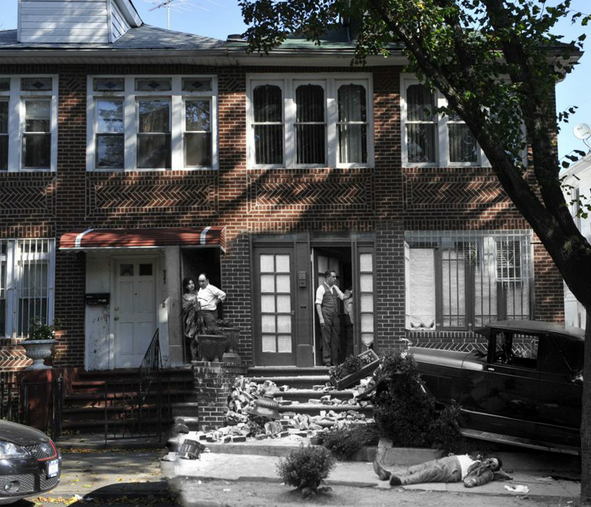 We are pleased to announce that we have accepted membership with the Theravive Network of Professional Psychologists. This membership solidifies our brand and brings awareness to the community about our services in the Vaughan and Maple area. This additional exposure will help more individuals become connected with professionals at our Maple / Vaughan counselling centre.
We are pleased to announce that we have accepted membership with the Theravive Network of Professional Psychologists. This membership solidifies our brand and brings awareness to the community about our services in the Vaughan and Maple area. This additional exposure will help more individuals become connected with professionals at our Maple / Vaughan counselling centre. Since accepting membership with Theravive, we’ve helped over 1000 clients at our Vaughan counselling centre location alone. This has allowed us to expand our programs and services and hire additional part-time counsellors with specializations in variety of areas.
Being connected with a professional network has also allowed us to foster stronger relationship with therapists outside of our community network. This has allowed us to refer clients and receive clients who may be interested in seeking services closer to their workplace or home. The network meetings have also allowed other community therapists to recognize the work we’ve done and plan on doing in the future. Also, they recognize our skills and refer their client’s with the confidence that they will be treated with a high standard of professional care.
Our Maple / Vaughan counselling centre’s are equipped with the resources to accommodate all individuals despite economic, racial, gender, and class disparity.
If you’re interested in learning more about how Counselling Services for York Region and our Maple / Vaughan counselling centre’s can help, please feel free to contact us at 416-999-3437.
 As of October 2013, we’ve received certification of membership from the Vaughan Chamber of Commerce. The Vaughan Chamber of Commerce is recognized as one of Ontario’s most prestigious business communities. Our certification allows our clients to know that we’ve developed trust and recognition by our local community chamber. This certification provides organizations within Vaughan a special distinction that will help build and foster stronger partnerships in the community. Since receiving this distinction, we’ve established four new partnerships and supported a number of local businesses.
As of October 2013, we’ve received certification of membership from the Vaughan Chamber of Commerce. The Vaughan Chamber of Commerce is recognized as one of Ontario’s most prestigious business communities. Our certification allows our clients to know that we’ve developed trust and recognition by our local community chamber. This certification provides organizations within Vaughan a special distinction that will help build and foster stronger partnerships in the community. Since receiving this distinction, we’ve established four new partnerships and supported a number of local businesses. This distinction has also allowed us to:
- Be recognized by potential clients as a trusted organization in Vaughan
- Be nominated for the award - Best Healthcare Provider/Organization in Vaughan
- Network with other healthcare professionals
- Develop a continuity of care amongst health care professionals in Vaughan/Maple
- Strengthen our community based research initiatives
- Develop projects with local schools/universities
Our Maple / Vaughan counselling centre is here to make sure that you receive quality care by professionals in the community. Our membership highlights our efforts to create at strong bond with local organizations in our community. We understand that the more community connections we make, the easier it is for our clients to feel safe and comfortable in our environment. We make every effort possible to make our counselling centres are accessible, warm, and inviting. We want you to know how dedicated we are to ensure that our clients attain positive health- both mentally and physically.
Lastly, it’s important for you to know that this distinction has helped us build stronger relationships with community physicians. This network distinction has allowed physicians in Vaughan to identify a credible source to refer to. This has led to a drastic decrease in number of prescriptions made for anti-depressants, since the inception of our cognitive behavioural therapy clinic in 2012. As many more physicians in Vaughan and Maple continue to offer counselling as an alternative to physical/mental health difficulties, we will continue to expand our resources to accommodate the demand in Vaughan/Maple. We are now proud to say that we’ve helped many patients overcome, challenge, and see positive results from counselling.
Our Maple / Vaughan counselling centre’s are here to help! For more information, please call us at 416-999-3437.

Brooklyn – July 1, 1928 – Photographer Unknown
Known as the ‘Al Capone of Brooklyn,’ Frankie Yale was shot by rival gang members. As he drove his Lincoln coupe while being injured, he later lost control of his car and landed on the front stoop of this house on 44th Street. This was to be known to be the first New York mob hit that employed sub-machine guns.

On this chilly day, flames consumed the church of the Sacred Hearts of Jesus and Mary. This famous landmark was claimed to have been destroyed by the fire, yet today after much construction, it’s now rebuilt and studying tall.

Brooklyn - July 28, 1957 - Original Photographer - Paul Bernius
An inmate, who had been recently released from the Brooklyn House of Detention, needed some clothes. He and two friends decided to steal a car and rob a clothing store. As seen in the original picture, they didn’t get too far. The autobody shop in the background has been noted to be still in business.

66 Court St., Brooklyn - January 31, 1961 - Ed Peters

